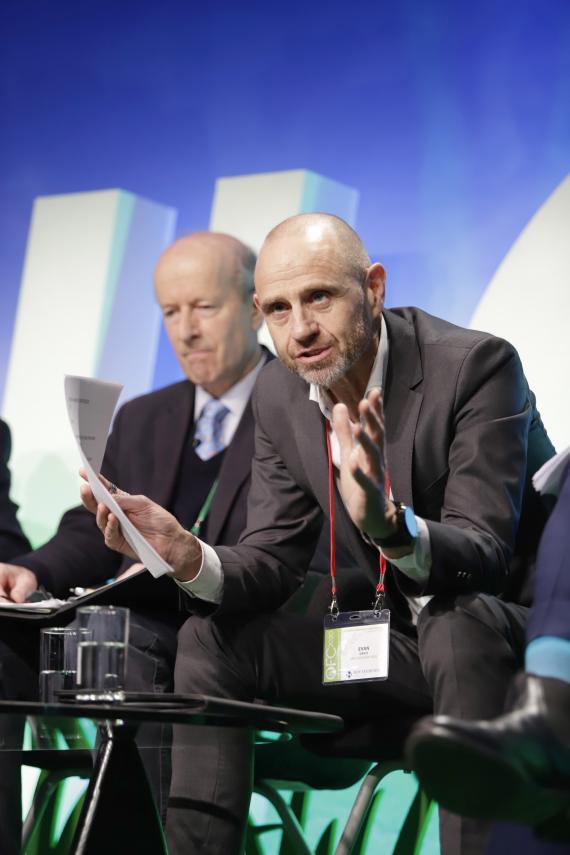Robust food system needs leadership - the National Food Strategy in discussion
8th January 2020 by ofc press

“The transition we now need – from a system optimised for calories, pleasure, and profit to one that also restores the environment, captures carbon, and stops making us sick – is huge”, says Henry Dimbleby, the co-founder of the Leon restaurant chain who was commissioned last June by Defra to lead the first major review of the food system for 75 years.
The National Food Strategy, for which there will be an interim report in the Spring before a full report later in the year, provided the focus for an interesting panel discussion on healthy, affordable food and sustainable production between influencers from different parts of the sector from a grower to retail and food banks.
“It cannot be done by government intervention alone,” said Mr Dimbleby. “The potential for negative unintended consequences is high. It will take thoughtful leadership from all of us in the sector and more broadly in society to bring about the transition.”
Chaired by the BBC’s Evan Davis, the panel included Gregg’s CEO, Roger Whiteside; John Shropshire OBE, Chairman of salad and vegetable grower G’s Fresh; Denise Bentley, who after a career in the City now tackles social injustice and the causes of poverty and deprivation including through the Tower Hamlets Foodbank; and economist Ian Mitchell who leads Center of Global Development in Europe on how governments’ policies accelerate or inhibit development and poverty reduction.
The purpose of the new food strategy is to look at what needs to be done by government and society more broadly to build a robust food system that provides nutritious, affordable food to everyone, restores the environment, promotes health, maintains the countryside and brings jobs to rural and urban communities.
Discussion looked at the benefits and negatives of intervention, for example tax relief for farmers who adhere to high welfare standards or reduce their carbon footprint, or, higher up the supply chain, adding VAT to less nutritious products to promote healthy choices among consumers and, in turn, subsidise fresh produce for those in food poverty.
While John Shropshire of G’s said the only way “to move the dial” is government intervention, the panel agreed that every regulatory system has unintended consequences.
Gregg’s boss, Roger Whiteside, said that consumers will not be dictated to, illustrated by his experience of the sugar tax. Many drinks brands changed their ingredients, but in Gregg’s sales, those that retained their original content, despite being more expensive with the added tax, maintained the greatest sales. Despite, Roger noted, that an increase in price usually directly correlates with a fall in sales.
Discussion also covered the measures land managers are already undertaking without incentive to help the environment, and how the decline in subsidy - which has driven overproduction - may dictate the future of food production, alongside the “agricultural revolution” accelerated by tech which allows for better planning and soil improvement among other progressions.
Watch the full presentation and discussion.
